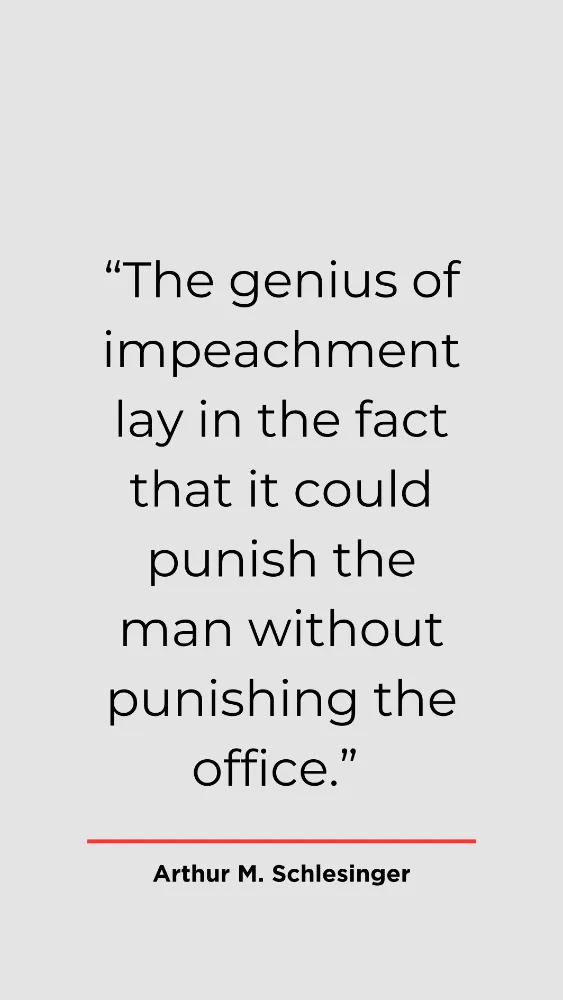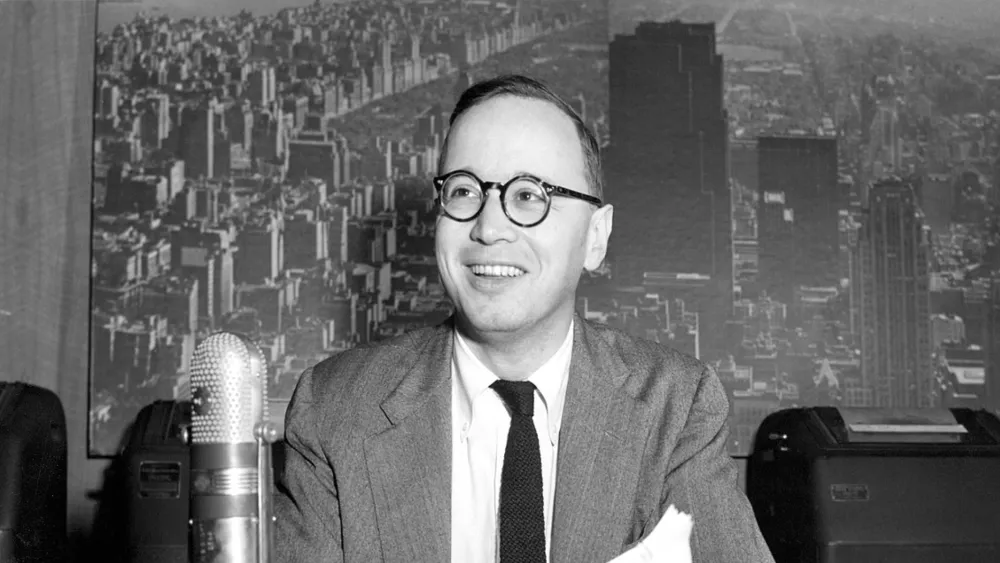Arthur M Schlesinger Jr. was an American historian and writer. His dad was an influential historian, too. Schlesinger studied 20th-century American liberalism, especially leaders like Truman, Roosevelt, JFK, and RFK.
He helped Adlai Stevenson in the 1952 and 1956 elections. From 1961 to 1963, he worked closely with President Kennedy and wrote a book about his time, winning a Pulitzer Prize.
In 1968, he supported Robert F. Kennedy’s presidential run, later writing a biography about him. Schlesinger coined the term “imperial presidency” in his 1973 book during Nixon’s administration.
Arthur M. Schlesinger: Early Years and Family Background
Arthur Meier Schlesinger Jr. was born in Columbus, Ohio. His father, Arthur M. Schlesinger, was a respected social historian at Ohio State University and Harvard University, guiding numerous PhD dissertations in American history.
Arthur’s paternal grandfather, originally a Prussian Jew, converted to Protestantism and married an Austrian Catholic. His mother, with roots traced to the Mayflower, had German and New England heritage.
Family tradition suggested a connection to historian George Bancroft. The Schlesinger family adhered to Unitarianism, contributing to Arthur’s diverse upbringing and eventual impact on American history.
Post-War Scholar: From Pulitzer Prize to Harvard Professorship
Schlesinger navigated an impressive educational journey, excelling at Phillips Exeter Academy and earning academic honors at Harvard College by age 20.
His path included a prestigious Henry Fellowship at Peterhouse, Cambridge, and a notable three-year Junior Fellowship at the Harvard Society of Fellows, where he made substantial contributions despite the restriction on advanced degrees.
Wartime circumstances led him to serve in the Office of War Information and later the Office of Strategic Services, where his skills in intelligence analysis thrived.
Amidst his wartime service, Schlesinger managed to author his first Pulitzer Prize-winning book, “The Age of Jackson.”
Returning to civilian life, he continued his scholarly pursuits at Harvard, ultimately attaining the esteemed position of a full professor in 1954.
Arthur M. Schlesinger: Founding Americans for Democratic Action
Engaging in political endeavors before 1960, Arthur M Schlesinger Jr. played a key role in founding Americans for Democratic Action in 1947, standing alongside influential figures like Eleanor Roosevelt, Hubert Humphrey, John Kenneth Galbraith, and Reinhold Niebuhr.
As the ADA’s national chairman from 1953 to 1954, he actively supported Governor Adlai E. Stevenson in the 1952 and 1956 presidential elections.
Furthermore, Schlesinger’s connection with John F. Kennedy dates back to their Harvard days and deepened in the 1950s.
Despite causing tension with Stevenson loyalists, Schlesinger fervently supported Kennedy in the 1960 campaign, contributing as a speechwriter and author. His book, “Kennedy or Nixon:
Does It Make Any Difference?” contrasted Kennedy’s prowess with his criticism of Vice President Richard M. Nixon.
Key Roles in the Kennedy Administration
Arthur M. Schlesinger Jr. played crucial roles during the Kennedy administration and initially offered ambassadorship or Assistant Secretary of State positions.
However, Robert Kennedy proposed a distinctive role as a “roving reporter and troubleshooter,” focusing on Latin American affairs and speechwriting.
Joining the White House on January 30, 1961, Schlesinger faced a turning point in February with the Bay of Pigs Invasion plan.
While expressing strong opposition, he suggested an alternative strategy, advocating for inducing Fidel Castro to take offensive action first.
Schlesinger’s unique insights and contributions played a pivotal role in shaping critical moments during the Kennedy administration.
Reflections on Decision-Making during the Crisis
Amid Cabinet deliberations, Arthur M Schlesinger Jr. assumed a quiet stance, sitting at the far end of the table, absorbing the discussions in silence.
As military and CIA representatives pressed President Kennedy for an invasion during the Bay of Pigs deliberations, Schlesinger and Senator William Fulbright conveyed their opposition through memos to the President.
Despite harboring reservations, Schlesinger hesitated to voice dissent during meetings, reluctant to disrupt the President’s pursuit of unanimity. Reflecting on this later, he regretted not challenging the flawed plan more assertively.
Although not part of the executive committee in the Cuban Missile Crisis, Schlesinger played a supportive role, aiding UN Ambassador Adlai Stevenson. So, they crafted a presentation for the UN Security Council, showcasing his behind-the-scenes contributions during critical events.
Arthur M. Schlesinger: Award-Winning Memoir
In October 1962, Schlesinger became concerned about a potential “tremendous advantage” arising from the Soviet commitment to cybernetics.
He warned of a possible shift to a new production technology by 1970, featuring self-teaching computers managing total enterprises.
This vision included an algorithmic governance of the economy through a network proposed by Soviet scientists like Alexander Kharkevich.
After President Kennedy’s assassination on November 22, 1963, Schlesinger resigned in January 1964.
Furthermore, he authored a memoir/history of the Kennedy administration, A Thousand Days: John F. Kennedy in the White House, securing his second Pulitzer Prize in 1965.
Arthur M Schlesinger: Opposition to Clinton and the Iraq War
Following his tenure with the Kennedy administration, Schlesinger maintained loyalty to the Kennedys, actively supporting Robert Kennedy’s 1968 presidential campaign and Senator Edward M. Kennedy in 1980.
Robert’s widow, Ethel Kennedy, requested Schlesinger write the biography “Robert Kennedy and His Times,” which was published in 1978.
Throughout the 1960s and 1970s, he criticized Richard Nixon, leading to his inclusion on Nixon’s list of political opponents.
After retiring from teaching, Schlesinger stayed engaged in politics through books and public speaking.
He criticized the Clinton Administration for coopting his “Vital Center” concept and opposed the 2003 Iraq War. Therefore, it attributed media negligence to the lack of coverage for a reasoned case against the war.

The End of an Era: Arthur M Schlesinger Jr.’s Passing
On February 28, 2007, Arthur M. Schlesinger Jr. suffered a heart attack while dining with family in a Manhattan steakhouse. Rushed to New York Downtown Hospital, he passed away at 89. Remembered as a “historian of power,” as per The New York Times obituary, Schlesinger found his final resting place in Mount Auburn Cemetery in Cambridge, Massachusetts.
Life Lessons from Arthur M Schlesinger Jr
Arthur M. Schlesinger Jr.’s life imparts valuable lessons. He engaged early in politics, founding the Americans for Democratic Action and supporting leaders like Adlai Stevenson and John F. Kennedy.
His pivotal role in the Kennedy administration and later critiques of Nixon and Clinton showcased resilience, foresight, and loyalty.
Furthermore, his reflections on decision-making during crises and opposition to the Iraq War underscored the importance of assertiveness and critical thinking.
Beyond politics, Schlesinger’s ability to balance a prolific academic career, family, and civic responsibilities is an inspiring model for a meaningful and impactful life.











